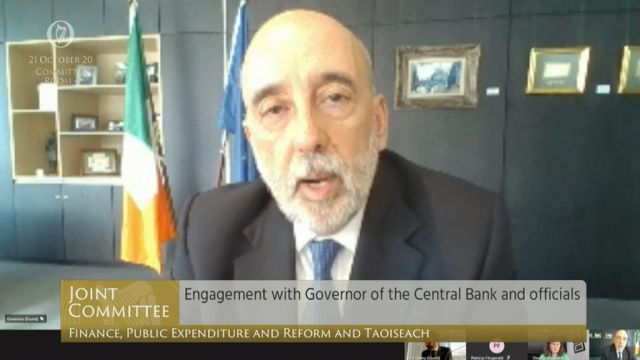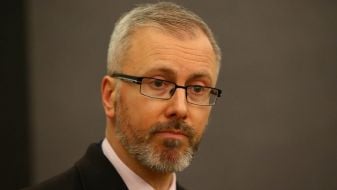The Central Bank of Ireland has said that any revenue windfalls from unexpected corporation tax receipts or proceeds from the sale of bank shares should be used to reduce debt levels.
In a pre-budget letter to the Minister of Finance, Paschal Donohoe, the Bank’s governor, Gabriel Makhlouf, proposed that measures such as broadening the tax base, reducing certain tax reliefs or changing certain tax rates could achieve “sustainable and balanced long-run growth”.
Mr Makhlouf also said that the ongoing public health challenges meant that uncertainty “remains high”.
The governor said the fiscal policy response to mitigate the impact of Covid-19 had been “warranted and proportionate”.
Today we have published the annual pre-budget letter from Governor Gabriel Makhlouf to Minister for Finance, Paschal Donohoe, ahead of Budget 2022. https://t.co/aq7Of3wQZt pic.twitter.com/o8XomCLoEe
Advertisement— Central Bank of Ireland (@centralbank_ie) September 1, 2021
But he said that a credible plan was needed to reduce the public debt ratio over time to a more sustainable level, which he said would ensure long-term resilience and the capacity to respond to future shocks.
In the letter dated July 30th, Mr Makhlouf said that the forthcoming budget should “signal clearly a sustainable path to a more resilient medium-term position for the public finances”.
He said that any revenue windfalls should be used to reduce debt levels rather than fund extra expenditure.
The governor warned: “In an economy already experiencing strong economic growth [as is currently projected], there is a risk that higher government spending and tax changes — as well as resulting in higher debt — could generate excessive inflationary pressures, leading to the emergence of damaging imbalances in the economy.”
He said there was a need to focus on planning for the impact of longer-term structural challenges facing the economy, including an ageing population and the need to finance the digital and carbon transitions.
“The focus of policy should shift from limiting the effects of the near-term shock to minimising supply constraints arising from labour market mismatches over the medium term,” he added.
“This could be achieved through targeted and effective labour market activation measures [such as re-skilling, training, apprenticeship, minimising welfare traps, etc] and facilitation moves out of longer-term unemployment and inactivity into employment in sectors with high labour demands.”
He added that the pandemic would leave a legacy of structural changes, adding to pre-existing challenges from globalisation, climate change and the transition to net zero by 2050, demographic ageing and digitalisation.
“These challenges and the changes they trigger will require adjustments by households, business and policymakers,” he added.
“As the immediate crisis management phase of the pandemic ends, attention should focus on planning for the impact of these challenges.
“This will help to ensure that the economy is well-placed to leverage the opportunities created by structural shift while minimising the costs of transition and disruption.”







